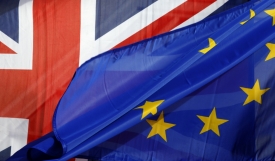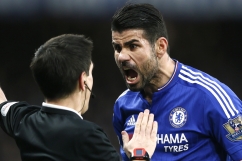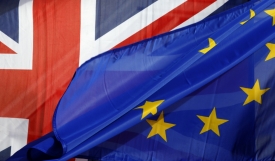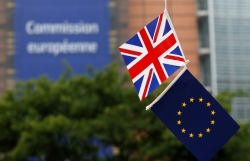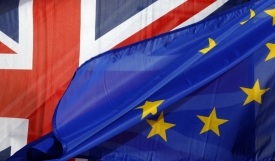Christians on opposite sides of the EU debate have called for unity and "good disagreement" as the referendum campaign heats up before Thursday's vote.
A joint statement of unity signed by 11 Christians from different parties calls for a vote "for a more just and hopeful world". It is part of a wider campaign by the organisation Christians in Politics to encourage Christians to change the tone of political debate and "disagree well".
"Last week, we began writing a different letter," the statement read. "It called for a change in tone on the EU referendum debate. It called on voters of the Christian faith to turn away from the typical political discourse dominating this decision, and to find inspiration in a kinder, deeper framework of guidance for their vote.
"Tragically, the terrible death of our dear friend and colleague Jo Cox MP has now indeed marked a sea change in the tone of the referendum debate.
"The tensions felt up and down the nation before her death have in part been defused by a national outpouring of unity. Unity in grief. Unity in shock. Unity in condemnation of the politics of division."
The statement is signed by a number of MPs from both campaigns. Liberal Democrat leader Tim Farron has signed the letter and will vote to remain in the EU alongside Labour's Jonathon Reynolds and Stephen Timms and the Conservatives John Glen and Jeremy Lefroy. The DUP's Jeffrey Donaldson and Conservative minister Desmond Swayne have also signed the statement and will back Brexit.
Jonathon Reynolds, chair of Christians on the Left and MP for Stalybridge and Hyde, said it was important to recognise other aspects to the debate other than immigration and the economy.
"This referendum was about bigger questions like what kind of society do we want," he told Christian Today.
The pro-EU MP added he thought divides created in the referendum could be healed after Thursday's vote.
"Whichever side wins the result will be close. You have to respect the other side's views and there are genuine concerns over immigration. But you can have a discussion over immigration without resorting to the levels of Nigel Farage.
"We have made difficult decisions like this before and I hope we can heal afterwards."
On Thursday Britons will vote on whether to remain a part of the European Union. It is the first time a vote has been held on its membership since 1975.










